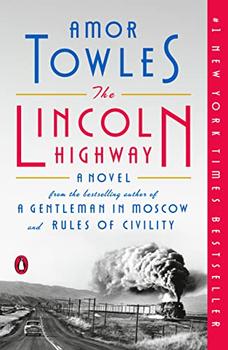Summary | Excerpt | Reading Guide | Reviews | Beyond the book | Read-Alikes | Genres & Themes | Author Bio

A Novel
by Barbara KingsolverI have read every novel by Barbara Kingsolver and I love them all, even the less favorably reviewed Animal Dreams and Prodigal Summer. Her writing is literary, lyrical and relevant - but that's not the reason for my deep affection. It's because she is a woman of heart and mind who is unafraid of using her mind to reveal her heart.
For almost 200 pages into The Lacuna, I was worried. Some critics have said that the book starts off slowly, but actually it's just hard to tell where the story is going, and I thought perhaps Kingsolver had lost her touch, as some writers do. Suddenly, within the next forty pages, I was hooked, convinced, and entirely seduced, and it only got better from there on.
While I had early doubts about the story, the voice had me from the start. I think voice is Kingsolver's strongest suit. From the quirky, rebellious Taylor Greer of The Bean Trees to the four unique voices of the sisters in The Poisonwood Bible, she proves herself a literary ventriloquist. The Lacuna is narrated by two main voices. Harrison Shepherd's story is told through his journals. Since he began keeping them as a lonely thirteen-year-old boy and wrote his last installment decades later, his voice and style grow from a young David Copperfield type to a disillusioned man but never lose their tone of bewilderment. The voice of Violet Brown, Harrison's loyal secretary, is the epitome of that southern wisdom from the hills - part of Kingsolver's own heritage.
 Through Harrison's ability to recreate conversations in his journals, we also hear from Frida Kahlo (arguably, Mexico's most famous female painter) who probably gives Harrison the most mothering he ever had. (Imagine having Frida Kahlo for a mother!) Most surprising of all is Leon Trotsky, known as Lev in this story, with his impassioned sense of history, the working class and the true meaning of communism.
Through Harrison's ability to recreate conversations in his journals, we also hear from Frida Kahlo (arguably, Mexico's most famous female painter) who probably gives Harrison the most mothering he ever had. (Imagine having Frida Kahlo for a mother!) Most surprising of all is Leon Trotsky, known as Lev in this story, with his impassioned sense of history, the working class and the true meaning of communism.
Any fan of Barbara Kingsolver would enjoy this book, as would fans of early-to-mid 20th century historical fiction. One critic complained of preachiness, which I have noticed is a word often aimed at women who speak up. I disagree and instead found in The Lacuna one of the more sensitive fictional accounts of the McCarthy era. In fact, as Harrison Shepherd finds himself targeted by the FBI and HUAC, his ordeal represents the intimate, troubling effects of those times on a single individual and brings the political into the personal.
The title of this novel is also its continuous imagery. A lacuna is a blank gap, a missing part (in a piece of writing or music, in bone or cartilage), a hole, a vacancy. Harrison Shepherd is haunted by lacunae. He discovers them, he is tortured by them, and ultimately it appears he is saved by one. His story moved me to laughter, outrage, anxiety, but mostly to tears. It is overall a very sad tale. When I closed the book, I simply could not move.
Images:
Above Top: Self-Portrait Dedicated to Leon Trotsky, by Frida Kahlo, 1937. (National Museum of Women in the Arts)
Right: Leon Trotsky, Diego Rivera, and Andre Breton (1938)
![]() This review was originally published in The BookBrowse Review in November 2009, and has been updated for the
September 2010 edition.
Click here to go to this issue.
This review was originally published in The BookBrowse Review in November 2009, and has been updated for the
September 2010 edition.
Click here to go to this issue.

If you liked The Lacuna, try these:

by Yuri Herrera
Published 2024
A major new novel set in nineteenth-century New Orleans by the author of Signs Preceding the End of the World.

by Amor Towles
Published 2023
Winner of the 2021 BookBrowse Fiction Award
The bestselling author of A Gentleman in Moscow and Rules of Civility and master of absorbing, sophisticated fiction returns with a stylish and propulsive novel set in 1950s America.
It was one of the worst speeches I ever heard ... when a simple apology was all that was required.
Click Here to find out who said this, as well as discovering other famous literary quotes!
Your guide toexceptional books
BookBrowse seeks out and recommends the best in contemporary fiction and nonfiction—books that not only engage and entertain but also deepen our understanding of ourselves and the world around us.